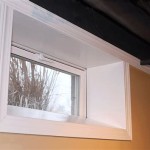Insulation For Basement: R-Value Explained
When it comes to insulating your basement, understanding R-value is crucial for optimal thermal performance and comfort. R-value measures the resistance of a material to heat flow, with higher values indicating better insulation. Here's a comprehensive guide to help you navigate the world of R-value insulation for your basement:
Understanding R-Value
R-value is expressed in units of feet squared per hour per degree Fahrenheit (ft²·h·°F). It represents the amount of thermal resistance provided by one inch of the insulation material. For example, an R-value of 10 means that it takes 10 hours for one British Thermal Unit (BTU) of heat to flow through one square foot of the material with a one-degree Fahrenheit temperature difference between its surfaces.
R-Value Recommendations for Basements
The recommended R-value for basement insulation varies depending on factors such as climate zone, building code requirements, and energy efficiency goals. However, as a general rule, the following R-values are recommended:
- Walls: R-15 to R-19
- Floor: R-10 to R-15
- Ceiling: R-30 to R-38
Types of Insulation Materials
Various insulation materials offer different R-values. Here are some commonly used options for basement insulation:
- Fiberglass batts: R-value ranges from R-2.5 to R-4 per inch
- Cellulose loose-fill: R-value ranges from R-3.2 to R-3.8 per inch
- Spray foam: R-value ranges from R-6 to R-7 per inch
- Rigid foam boards: R-value ranges from R-4 to R-7 per inch
Factors to Consider When Choosing Insulation
In addition to R-value, other factors to consider when choosing basement insulation include:
- Moisture resistance: Choose materials resistant to moisture, such as closed-cell spray foam or rigid foam boards.
- Cost: Insulation materials vary in cost, so consider your budget when selecting a type.
- Installation: Some materials are easier to install than others. Consider your DIY skills and the availability of professional installers.
- Environmental impact: Some insulation materials have a lower environmental impact than others. Research sustainable options.
Benefits of Basement Insulation
Proper basement insulation provides numerous benefits, including:
- Improved comfort: Insulation helps regulate basement temperatures, keeping it warmer in winter and cooler in summer.
- Reduced energy consumption: Insulation minimizes heat loss, leading to reduced heating and cooling costs.
- Increased home value: An insulated basement adds value to your home.
- Improved air quality: Insulation can help prevent moisture buildup, reducing the risk of mold and mildew.
Conclusion
Understanding R-value and choosing the appropriate insulation materials are essential for maximizing the thermal performance and comfort of your basement. By considering the factors discussed above, you can make an informed decision that meets your specific needs and budget. Proper basement insulation is a worthwhile investment that will enhance the livability and value of your home for years to come.

What R Value Do I Need Johns Manville

Recommended Insulation Levels For Optimum R Value

Etw Foundation Code Minimum R 10 Continuous Insulation Buildingscience Com

What R Value Do I Need Insulation Explained

Etw Foundation R 13 Fiberglass Batt In A 2x4 Framed Wall Buildingscience Com

Insulation Levels For Cold Hot And Moderate Climates

Basement Wall Insulation Achieving Best Results Rmax

Recommended Home Insulation R Values

The R Value Of Eps Insulation Ultimate Guide Rmax

Insulation R Value What Is It Knauf








